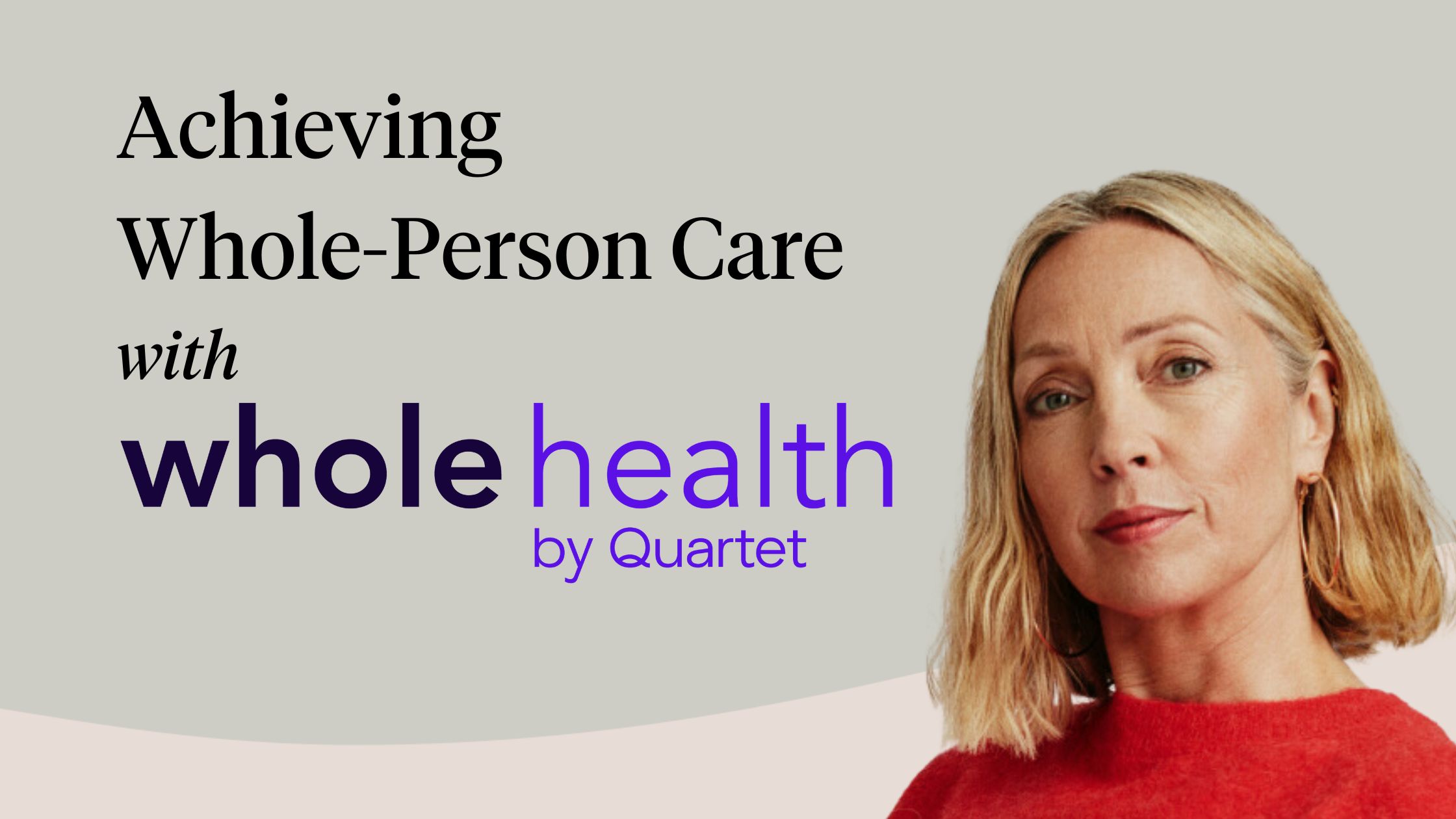Applying A Whole Health Solution To SMI

October 18, 2024
At Quartet Health, we’ve been focused — since our inception — on making sure everyone who needs mental health care can more easily get the services they need. To us, that means embarking on ambitious efforts to build a better mental healthcare system by improving access to care, improving system navigation, and creating more seamless connections between people in need of care and those who can provide it.
Recently, we saw an opportunity to offer improved support to a patient population that is consistently underserved. From rural settings to urban communities, patients living with serious mental illness (SMI) often navigate a fragmented system of care while attempting to address all of their needs.
To complicate those efforts — to meet their social, emotional, physical, and mental needs — the individuals searching for services are doing so while also trying to manage a serious mental illness, which is characterized in part by its debilitating nature and its detrimental impact on the ability to function on a daily basis.
Whole Health, Quartet’s newest clinical program, aims to pioneer a new path forward. And that path will benefit both the patient and the healthcare system.
SMI And Its Impact
As it is, individuals living with an SMI generally face an increased vulnerability to experiencing comorbidities. However, due to the nature of a serious mental illness, those comorbidities can often go unchecked, untreated, or undiagnosed.
SMI refers to severe mental health conditions, including major depression, bipolar disorder, schizophrenia, obsessive compulsive disorder, borderline personality disorder, panic disorder, and post traumatic stress disorder. The National Institute of Mental Health estimates that more than 14 million Americans, or about 5.5% of the U.S. adult population, lived with a serious mental illness in 2021.
The consequences of untreated SMI can be dire.
Statistics shared by the nonprofit Treatment Advocacy Center reveal that at least one in three individuals who are homeless are also living with an SMI. In addition, the SMI patient population is more vulnerable to victimization, more likely to commit violence against a family member, and more at risk for criminalization and suicidal behavior.
At Quartet, we saw an opportunity to introduce a new, whole-person approach to care for this vulnerable patient population.
Whole Health For SMI
Whole Health is a whole-person healthcare initiative on a mission. It aims to improve care, and access to it, while reducing costs. And when it comes to the SMI patient population, we know it’s possible with the approach we’re taking.
By integrating physical and behavioral health care (along with critical social services), Whole Health facilitates easier connections to care for individuals who often struggle to find and access what they need. The program (launched earlier this year in New Jersey) connects patients with a personalized care team that includes physical and behavioral health specialists.
That care team coordinates wraparound care for the patient, addressing needs as they arise, from medication management to social services and beyond. By addressing those needs from a preventative stance, rather than an acute, reactive one, health systems and insurers realize a reduction in the cost to care for SMI patients.
And patients experience more consistent and prolonged stability and balance.
Our latest whitepaper, “Achieving Whole-Person Care With Whole Health,” offers a more detailed view of the program.
Explore more

Quality Mental Health Care, Wherever You Are
At Quartet, we know that mental health care isn’t one size fits all.

Take Your Own Advice: A Note to Therapists on Self Care During COVID‑19
COVID-19 added a layer of complexity for mental healthcare workers, who may be experiencing their own stressors and anxieties related to the crisis.

Fighting Two Pandemics: Supporting Domestic Violence Survivors and Their Mental Health Needs During COVID‑19
For some, following the stay-at-home orders for one pandemic may render them vulnerable to another: domestic violence.



